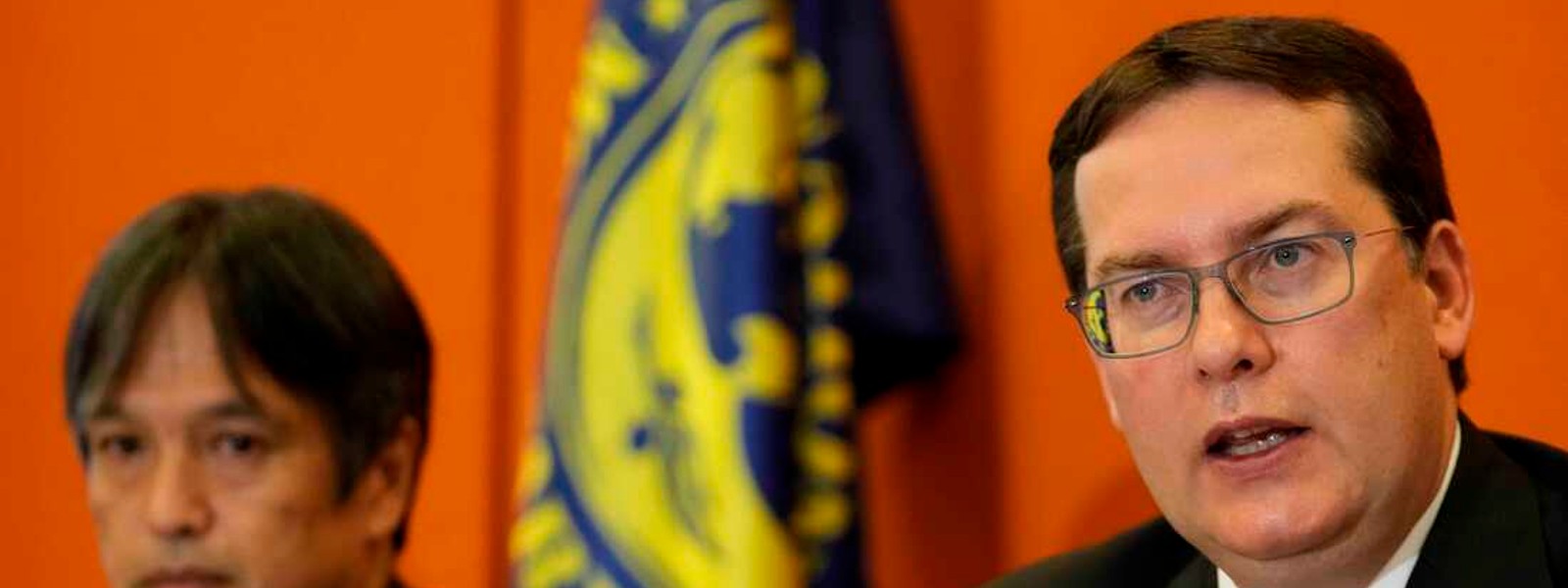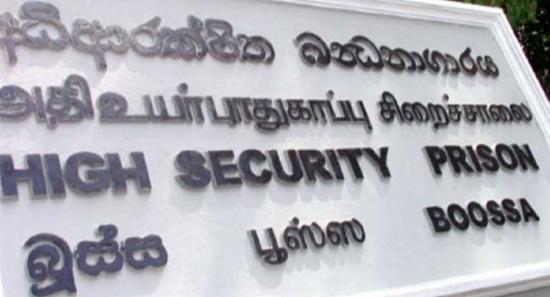.webp)

Sri Lanka needs government with mandate to carry out reforms - IMF Mission Chief
COLOMBO (News 1st); The International Monetary Fund Mission in Sri Lanka said the country needs a government that has a mandate to carry out the reforms mentioned in the Extended Fund Facility (EFF) arrangement for US $ 2.9 Billion announced on Thursday (1).
IMF Senior Mission Chief for Sri Lanka Peter Breuer told reporters in Colombo that the Political Environment matters because the reforms need to be carried out.
"From the IMFs perspective our arrangement is with the people of Sri Lanka. We are here to help the country to emerge from the crisis and the people to enjoy prosperity going forward," he said.
Breuer noted that the political context matters, and the IMF hopes the regained stability in the country will endure so the economic reforms can be carried out.
The International Monetary Fund said that the bailout package agreement of $2.9 billion is contingent on Sri Lankan authorities following through with previously agreed measures.
IMF conditions for the loan also include receiving financing assurances from Sri Lanka's official creditors and efforts by the country to reach an agreement with private creditors.
The program by the International Monetary Funds comprises of seven key elements.
1. Raising fiscal revenue to support fiscal consolidation.
Starting from one of the lowest revenue levels in the world, the program will implement major tax reforms. These reforms include making personal income tax more progressive and broadening the tax base for corporate income tax and VAT. The program aims to reach a primary surplus of 2.3 percent of GDP by 2025.
2. Introducing cost-recovery based pricing for fuel and electricity to minimize fiscal risks arising from state-owned enterprises. The team welcomed the authorities’ already announced substantial revenue measures and energy pricing reforms;
3. Mitigating the impact of the current crisis on the poor and vulnerable by raising social spending, and improving the coverage and targeting of social safety net programs;
4. Restoring price stability through data-driven monetary policy action, fiscal consolidation, phasing out monetary financing, and stronger central bank autonomy that allow pursuing a flexible inflation targeting regime. A new Central Bank Act is a cornerstone of this strategy;
5. Rebuilding foreign reserves through restoring a market-determined and flexible exchange rate, supported by the comprehensive policy package under the program;
6. Safeguarding financial stability by ensuring a healthy and adequately capitalized banking system, and by upgrading financial sector safety nets and regulatory standards with a revised Banking Act;
7. Reducing corruption vulnerabilities through improving fiscal transparency and public financial management, introducing a stronger anti-corruption legal framework, and conducting an in-depth governance diagnostic, supported by IMF technical assistance.
Other Articles
Featured News





.png )
-820221_550x300.jpg)
-820215_550x300.jpg)
-820202_550x300.png)
-820196_550x300.png)






-819380_550x300.jpg)


-812087_550x300.jpg)
-810262_550x300.jpg)
















.gif)